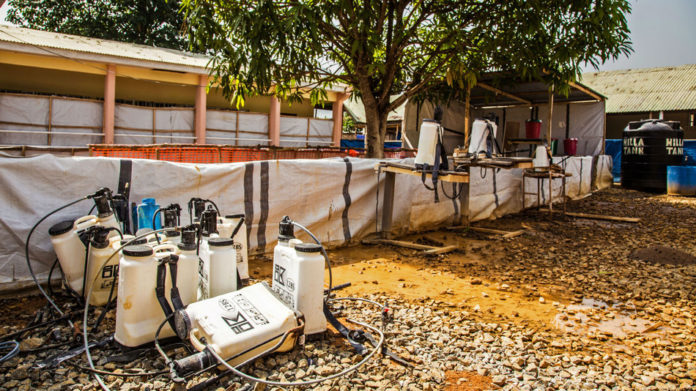WHO: Number of new Ebola cases drops to lowest level since June

LONDON — Health officials are now focused on ending the biggest-ever Ebola outbreak rather than just slowing the deadly virus’ spread, the World Health Organization said Thursday.
The U.N. health agency said the three most affected countries — Guinea, Sierra Leone and Liberia — have reported fewer than 100 cases in the past week, for the first time since June.
Still, WHO also reported that only 30 percent of new cases in Guinea are known contacts of Ebola patients, meaning officials have no idea how most patients are getting infected. In Liberia, that figure is 50 percent, while no data are available for Sierra Leone. The death rate for hospitalized patients is about 60 percent.
Here you can find the latest WHO #Ebola situation report http://t.co/vgRsdukHBW pic.twitter.com/YR7MccSX7P
— WHO (@WHO) January 29, 2015
The outbreak is believed to have killed more than 8,000 people since it started in March.
Dr. Bruce Aylward, who is leading WHO’s Ebola response, warned that despite the progress made, the virus still isn’t under control.
“This is like being in bed with two cobras, and one of them is dead,” Aylward said. “You still have an incredibly dangerous situation.” He added that Ebola outbreaks often come in waves.
“We cannot say the epidemic is under control,” said Jerome Oberreit, secretary general of Doctors Without Borders. At a WHO Ebola meeting on Sunday, Oberreit said there is virtually no sharing of Ebola information about the risks of cases crossing the borders among the three countries in West Africa.
He said surveillance teams lack even basic resources to track down Ebola patients and blamed “international negligence” for the inability to contain the outbreak.
Researchers at the Institut Pasteur in Paris have begun studying whether the virus has undergone any significant mutations since the outbreak began. Viruses like Ebola evolve constantly and it’s hard to tell if any genetic changes make a difference to how people get infected or how sick they become.
Have something to add to this story? Share it in the comments.
